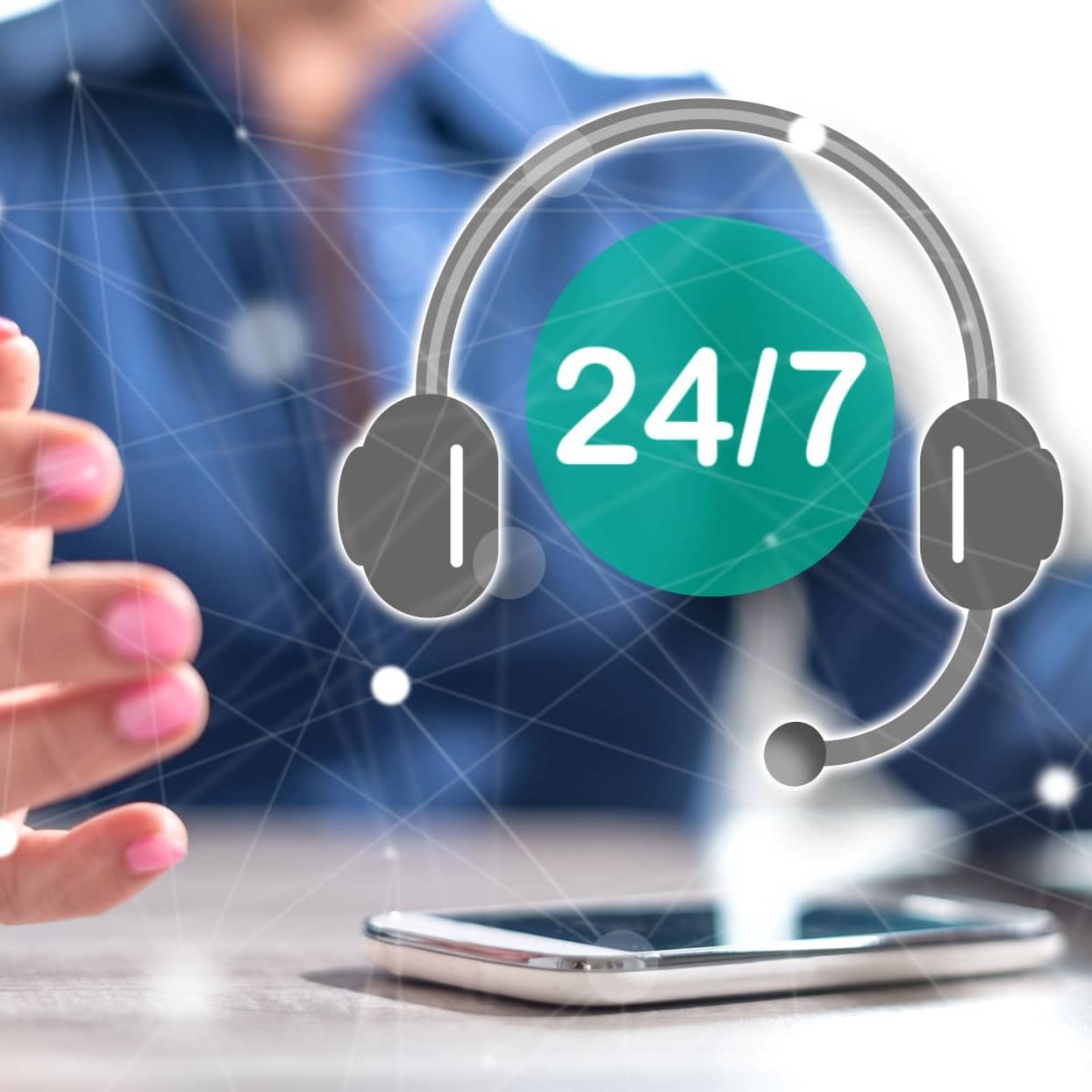
What is a PBX phone system?
That’s a good question and a reasonable place to start. Before we get into the specifics of a cloud PBX phone system, let’s talk about the function of the PBX in a business. It stands for Private Branch Exchange and is responsible for routing your internal and external phone calls. That includes directing your incoming calls to the correct person, as well as allowing workers to call each other internally.
In the days when all communication was via landline, your PBX needed to be a physical machine located in your building. In addition to shelling out for the hardware, you would have to buy the appropriate licenses. Not to mention employing technicians capable of chasing down any gremlins in the system.
Of course, back then this was all worth it. Because the alternative was having as many lines in your business as there were people employed, each with their own phone bill. The invention of the on-premises PBX drastically cut the number of individual phone lines needed by any business. It also meant employees could call each other without having to pay for the privilege.
But business phone systems don’t need a landline anymore. Voice over IP (VoIP) calls just require a high-speed broadband connection and a handset. In fact, by 2025 all traditional phone exchanges will become a thing of the past. So VoIP services will soon become the default option. And one consequence is that you can host a PBX solution virtually too.
Why a cloud PBX phone system works better
The chances are, you’re already using some cloud services within your business – whether it’s Microsoft Office or your CRM software. These are referred to as Software as a Service (SaaS). Everything needed to run the applications is hosted in a secure data centre and accessed through the internet via a monthly subscription.
The same approach can be taken to your PBX, through Contact Centre as a Service (CCaaS) solutions. All the hardware, software and other technology that your PBX needs to manage your calls are hosted in the cloud. Does your business have a reliable high-speed internet connection and VoIP enabled desk phones? Good. You can operate a cloud PBX phone system.
But just because the technology is new, that doesn’t make it better, right? Well, in this case, it does have some distinct advantages over the traditional on-premises PBX. Why else would we be writing this blog? So here are some of the reasons we think cloud phone systems are better.
1. Low startup costs
Firstly, you don’t have to buy any additional hardware for your phone system to operate. That’s one less financial commitment to worry about and less overall risk when it comes to getting started.
Instead, most hosting providers will charge you monthly per user. For small businesses, this is a huge deal. Depending on the size and type of your company, this alone could save tens of thousands of pounds. It also lets you move quickly and learn what works for you.
2. No server maintenance
At the risk of repetition, this is about lower risk and lower cost. Because your PBX is hosted in the cloud, your provider is responsible for conducting any maintenance. No maintenance results in you employing fewer technicians. Equally important is that your downtime will be near zero whenever your provider updates or maintains your system.
A reputable hosting provider will also house your virtual PBX server across multiple data centres. This is good for a number of reasons, primarily because it ensures a more reliable phone service. These highly secure data centres are spread across different geographical locations. In the unlikely event that one should fail, it will automatically be replaced to ensure there’s no disruption.
3. Less technical knowledge required
This is a follow up from point number two. Another feature of a cloud-based PBX is the ease with which you can set up and manage user settings. You don’t need the technical wizardry required for the on-premises version. Instead, you can customise settings using a simple drag and drop interface known as a Call Flow.
This includes everything from phone onboarding to configuration, permissions, call services and call routing.
4. Flexible and easy to scale
When you’re starting out, it can be difficult to know what your business might need. With a traditional PBX, you would have to invest in a system and hope for the best. But physical adjustments to your on-premises PBX are expensive and difficult. So whether things are going well or going in the opposite direction, you are going to have to pay.
But because CCaaS is charged per user, you can scale in any direction without jumping through hoops. You can add and remove lines whenever you need and access the same PBX even if you move buildings. And this leads us to point number 5.
5. Accessible from multiple locations
Perhaps you’re running your business from several offices. Or your employees need to work remotely (sound familiar?). Either way, having your phone services managed by a cloud-hosted PBX means you’re still only paying for what you use.
Your remote workers can get their calls routed to them wherever they’re located. All they need is their VoIP phone, a softphone or a mobile app. Same number, same functionality, and no need to invest in separate systems.
6. More features and better functionality
While the first five points are more about the bits your customers don’t see, this one is all about the customer experience. Having a more modern PBX makes it easier to automate and simplify the incoming phone call procedure. Features like call recording, auto-attendant and interactive voice response (IVR) have been around for a while. But a cloud-based PBX allows you to quickly and easily change settings without the need for additional technical knowledge.
It also integrates many other features as standard. Businesses running a traditional PBX will also use separate services alongside, like video conferencing. With a cloud-hosted PBX, you tend to get a far greater level of omnichannel support, incorporating live chat, SMS, video conferencing and social media.
Is a cloud PBX phone system right for you?
Although we’ve waxed lyrical about one particular option, that doesn’t necessarily mean it’s the optimal choice for your business. On-premises PBX systems do have their own advantages. For example, you have far greater control over something that you own outright. They are all your servers, your components, your equipment.
For some businesses this can provide a greater sense of security: you know exactly who has physical access to your system at all times. In addition, you can change settings, upgrade and fix issues without needing a third party.
If you’ve got the CAPEX for a large initial investment, it may even save you money in the very long term. However, this assumes that you won’t need to upgrade or make too many changes – and that is a big if.
But if you are a small or medium-sized business, we think a cloud PBX phone system makes for a stronger option overall. It offers better scalability, flexibility, usability and a lower total cost of ownership. And most importantly, it makes it easier to keep your customers happy.
Learn more about cloud PBX providers
For more information about choosing the right cloud PBX provider and the benefits of cloud-based contact centres, check out our resources below:
- Whitepaper: The best contact centre statistics for your business case.
- Brand Battle: RingCentral vs 8×8.
- Brand Battle: 3CX vs Vonage.
- Case Study: Ashley Helme Associates.
Learn more about how you can make the most of cloud services to support, enhance or protect your IT infrastructure. Contact us and get in touch for a free trial or demonstration.

